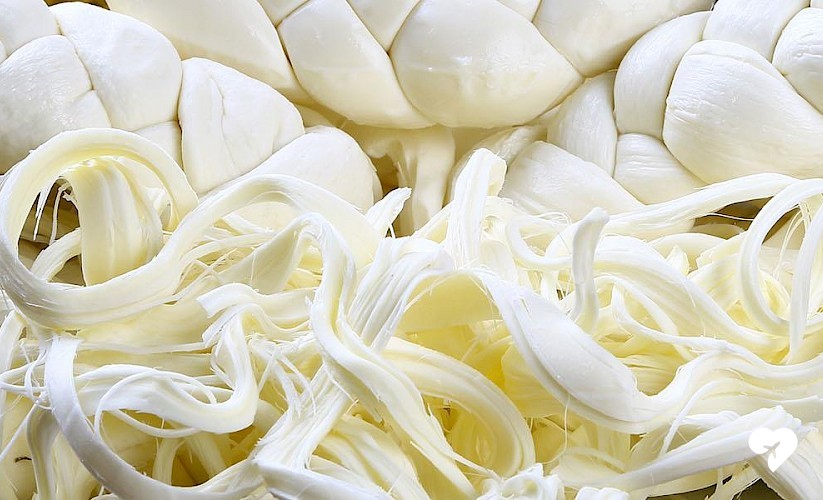Back by popular demand, even MORE incredibly flavorful Turkish cheeses for your tasting pleasure!
Çökelek Cheese along the Mediterranean

Çökelek cheese is an unsalted and light cheese that made from yoghurt and comes from different parts of Turkey's Mediterranean region. It's excellent in pastries and is often seasoned to give in an extra bit of flavor, or if it's on it's own it often is served with a drizzle of olive oil.
After the cheese is made it's usually aged for many months to bring out its flavor, making the it rich and creamy, so much so that it is also served with meat dishes. After it's matured it's dried out to harden and is truly one of the best cheeses in Turkey.
Kargı Tulum Cheese from Çorum
.jpg)
Tulum cheese produced in Kargı in the province of Çorum along the Black Sea is slightly more conventional than Bergama Tulum. It can be made of cow, sheep or goat's milk (or more often than not a mixture thereof) and is not salted in the way Bergama Tulum is, meaning it's a little more crumbly and a little sharper.
It's matured and is an excellent accompaniment to a big dinner full of rich flavors. It's often sold in either a sheepskin or goatskin and has a buttery consistency at times to match its sharp flavor. It's typically matured for around 6 months and goes wonderfully well with walnuts and freshly baked bread.
Otlu Peynir (Herbed Cheese) from Van

As the name suggests, the cheese isn't doing all the work with Van herbed cheese. The cheese itself itypically made from either sheep or cow's milk and are semi-hard with a salty flavor, but the majority of the flavor comes from the incredible amount of herbs that are put in, many of them local and endemic to the Van region of Turkey.
20-25 various herbs are added, including most commonly Allium, Thymus, Silene and Ferula. But each village around Van tends to have their own local herbs that they add (or don't) and as the cheese itself has grown in popularity, so have the varieties it comes in. Herbs added are often wild, such as wild garlic which gives the cheese a garlicky aroma in many cases.
The cheese itself developed for medicinal purposes when healing herbs needed to be eaten in large quantities, especially due to the lack of scientific knowledge for which herbs in particular were the most beneficial to health. So the cheese was produced to make a tasty way to consume many different wild herbs known only to local doctors. The herbs are brined before being added to the cheese, thus the cheese's salty flavor, and the cheese is typically matured around 6 months to bring out the flavor. The final product is a yellowish, semi-hard cheese with a garlicky aroma and a fair scent of fresh thyme as well.
It's eat as a grated cheese onto omelets or also goes incredibly well in sauces, or simply eaten as a meze appetizer with some bread and butter.
Koleti Cheese from Trabzon

Koleti cheese is local to the Black Sea region of turkey and is particularly famous for its use in the dish of Mıhlama. Koleti is made from unpasteurized milk and when the milk turns ot cheese it is doused with boiling water and left to cool before being sliced and aged at least 3 months.
Mıhlama is made by mixing cornmeal and either butter or clotted cream with the cheese for an incredibly rich, cheesy dish that's cooked slowly together so the cheese is stringy and melted and served piping hot.
Kaşar Cheese from Kars

Kaşar cheese, or eski kaşar (literally old kaşar) as the matured version is known, is perhaps the cheese that is most widely used in foods compared with eaten on its own. It has a buttery and tangy flavor that makes it suitable to eat with any meal. When aged over 6 months, as it usually is in the northeastern region of Kars, it develops peppery notes that go incredibly well with just about anything. It can be made from cow, sheep or goat's milk though cow's milk is the most common. It often accompanies white cheese with breakfast as a very different flavor.
Before it's been aged, kaşar cheese is smoother and lighter and is typically made from cow's milk. It melts very well and is used as the primary melting cheese in Turkish dishes, though it's excellent for slicing or grating as well. It's used in pizzas, sandwiches, or most commonly on grilled cheese sandwiches simply called "toast" in Turkish.
